|
This Q&A with prolific author Rotimi Ogunjobi is the second part of a special 2-part feature on the literary titan. The first part, titled Versatility and Vision… provides an in-depth look into the writer’s background. It was published in the AI Literary Chat Salon here at Bright Skylark and you can check it out it out by clicking here. The interview with Ogunjobi begins now: AI Literary Chat Contributor: You have been actively involved in various forms of writing, from novels to plays and poetry. How do you perceive the role of literature in addressing the pressing political and social issues of our time, particularly within the context of Nigeria and the wider world? Rotimi Ogunjobi: As a Nigerian author, I view literature as a powerful tool for addressing pressing political and social issues both in Nigeria and on a global scale. Literature has the unique ability to engage readers on a deep and emotional level, allowing them to connect with complex issues in a way that is both thought-provoking and empathetic. In the context of Nigeria, a country with a rich and diverse cultural heritage, but also facing a myriad of challenges, literature plays a crucial role in several ways. Among other factors, it helps raise awareness concerning important issues, it promotes dialogues, documents history and supports cultural preservation all at the same time that it inspires change. AI LCC: And in what way would you say this is significant in the larger world community? RO: On a wider global scale, literature from Nigeria and other parts of Africa contributes to a more comprehensive understanding of the continent's complexities. It challenges stereotypes and misconceptions and highlights the rich tapestry of African life, culture, and history. In essence, literature has the power to be a catalyst for change, a source of education and enlightenment, and a means of preserving culture and history. I believe it is my duty to continue using my craft to address pressing political and social issues, share the stories of my people, and contribute to a more informed, empathetic, and connected world. AI LCC: Your literary career has spanned several decades, and you’ve seen significant changes occur in the publishing industry. How have these changes influenced your approach to writing, publishing, and connecting with readers? RO: Traditional publishers in Nigeria focus mainly on educational content, primarily because the recreational reading culture is not quite encouraging. Even the small publishers of fiction books strive to get their products into the school reading lists just to be able to make a bit of profit... AI LCC: So how did the priorities of traditional publishers affect your choices and processes? RO: As most of my books have been self-published, some of the key ways which changes in the industry have shaped my literary journey involved such events as the development of technology and digital publishing, the global reach made possible by the internet, genre diversity, and social and political engagement. These have all had strong impacts on my literary processes. When it comes to genre diversity in particular, the evolving publishing industry has allowed me to explore various literary forms, from novels to plays, poetry, children's books, and folklore collections. This diversity not only keeps my writing fresh and exciting but also caters to different age groups and interests, making my works appealing to a broader range of readers. AI LCC: Translations of your works into multiple languages have undoubtedly broadened your readership. Could you tell something about how this multilingual approach contributes to cross-cultural understanding and the dissemination of African narratives? RO: Indeed, facilitating the translation of my works into multiple languages has been a deliberate and important part of my literary journey as a Nigerian author. I have been able to achieve this mainly through a revenue sharing translator community. This multilingual approach plays a significant role in fostering cross-cultural understanding and the dissemination of African narratives in several ways. Africa is a continent with incredible linguistic diversity, and each language represents a unique cultural perspective. By translating my works into multiple languages, I aim to break language barriers and make my stories accessible to a wider African audience. This helps in preserving and celebrating the richness of African cultures and languages. Translation also allows my stories to transcend geographical and linguistic boundaries, reaching a global audience that may not be proficient in the original language of the work. This, in turn, contributes to a more accurate and diverse representation of African voices in the global literary canon. In addition, translations help break down stereotypes, have significant educational value, and can serve as a kind of cultural diplomacy. All of these promote a more inclusive and interconnected global literary landscape, which is something I am committed to continuing. AI LCC: The different genres into which you’ve ventured include children's books and African folklore collections. How does your background in engineering inform your creative process when crafting stories for younger audiences? RO: …Engineering emphasizes precision and attention to detail. When writing children's books, I think I unconsciously apply this mindset to the structure of the story. I carefully plan the plot, pacing, and character development to ensure that the narrative flows smoothly and engages young readers effectively. It is [also] true that engineers are trained to solve complex problems systematically. This skill set is invaluable when creating stories that need to convey moral lessons or address important issues for children. I approach these challenges methodically, ensuring that the message is clear and relatable. It is also true that engineers are trained to consider cause-and-effect relationships and logical sequences. This skill helps me create coherent and engaging narratives in children's books. Young readers appreciate stories that make sense and follow a logical progression. Not that the foregoing define my writing though. The primary objectives of my children's books are either to teach a memorable moral lesson or to make the reader laugh. I feel great if the story does both. I love being able to engage young readers in a way that encourages their curiosity, problem-solving abilities, and critical thinking while immersing them in the rich world of storytelling. AI LCC: In your extensive body of work, you've authored plays and even produced documentary films based on your narratives. How do you believe the transition from written word to visual medium impacts the way your stories are received and understood by audiences? RO: It is my hope that the transition from the written word to the visual medium, such as producing documentary films based on my narratives, will have a significant impact on the way my stories are received and understood by audiences. It is an expensive medium which I confess I am not at all financially prepared to fully engage. Regardless, I think first of the expected result and believe that the means will show up somehow. It is all we can do as artists. Transition from written word offers unique and powerful ways to engage with the narratives and to enrich the audience's experience. The medium itself can enhance readers' connections to the story, broaden its reach, and provide a deeper understanding of the themes and cultures portrayed… A visual medium often involves collaboration with filmmakers, actors, and production teams. This interdisciplinary approach can bring fresh perspectives to the narrative, enriching it with new insights and creative interpretations. Films can reach a broader and more diverse audience than books alone. They are accessible to people of all ages and literacy levels. This accessibility ensures that the story's message and themes can be shared with a wider range of viewers, including those who may not be avid readers. Documentary films in particular can be valuable tools for preserving oral traditions. They allow for the recording and sharing of traditional stories, myths, and rituals, ensuring that they are not lost to time. However, it's important to note that the transition from written word to visual medium also comes with challenges, such as the need to condense complex narratives, make creative choices, and adapt the story for a different format. Balancing fidelity to the original work with the demands of visual storytelling requires careful considerations. AI LCC: You've authored fictional works with thought-provoking titles like The Dreamers, The Bata Dancer, and The Crooked Bullet. Could you shed light on the underlying themes and messages that you hope readers take away from these novels? RO: Much of what you need to know about my books, you will find in my literary autobiography, Gathering the Words, subtitled, why I wrote what I wrote. It tells the reader about the circumstances that gave birth to each story idea . It is my book of books. In any case I will briefly answer your question about those three books you have mentioned. The Dreamers was initially titled “A Conference in Ennui" when submitted to the BBC Book contest, from which it won a place on the long list. The novel was self-published as "Somber City," and later as The Dreamers. The story centers on the tumultuous experiences of various characters in Lagos, each facing their own trials during a challenging period of economic hardship. The main character, a young engineer, initially loses his job and naively expects a quick reemployment. The unforgiving environment of Lagos eventually leads him to a mental hospital. Another character, a man who has escaped the troubled and polluted Niger Delta, secures a low-paying job as a security guard but struggles to provide for his family when his wife gives birth to triplets. The novel also introduces a schizophrenic youth deported from America who adopts a disturbing life philosophy and plans a misguided act involving the Defense Headquarters building. This act ultimately lands him in a mental hospital. Lastly, there is a sociopathic policeman who derives pleasure from tormenting others but is eventually driven to madness by a voodoo curse. These are some of the dreamers that crossed the timeline of his life during this period of distress. The novel The Bata Dancer is about a distinctive drum and dance tradition originating from the Yoruba tribe in South West Nigeria. Over time, it has spread not only within West Africa but also to various parts of the world. The Bata Dancer was one of the most challenging stories for me to write. It required three years of extensive preparation before I could begin writing the book to authentically portray the world of Bata dance. My goal was to delve deep into the perspectives of both the drummers and the dancers, essentially immersing myself in the world of the Bata dancer. At its heart, the novel is a romance tale about a young man seeking to rebuild his life, his connection with a legendary dancer, and his journey to master the art of Bata dance. AI LCC: And what about your novel, The Crooked Bullet? RO: During my time living in London, England, my bus commute home would sometimes pass through Whitechapel. The area has a notorious history of crime, including its connection to the infamous Victorian murderer Jack the Ripper, and for being the residence of the famous Kray Twins, who were prominent figures in organized crime during the 1950s and 1960s. I have a deep appreciation for comedies, and one of my favorite comedy films is "The Black Bird," which features a detective named Sam Spade [who is] constantly caught up in comical situations. This film is a parody of an earlier work based on the novel The Maltese Falcon by Dashiell Hammett, published in 1930. In my story, The Crooked Bullet, based in East London, I explore a similarly quirky theme as seen in The Black Bird. However, the main difference lies in the protagonists. While Sam Spade is portrayed as an experienced detective, the hero of The Crooked Bullet is a bumbling amateur attempting to transition from a former career as a newspaper reporter to a new role as a private investigator. Adding to the comical intrigue, our hero also has an intriguing sideline as a disk jockey. AI LCC: As we conclude this interview, could share some thoughts on what you believe you have accomplished thus far as a writer, both artistically and in terms of contributing to humanity's understanding of complex issues? And what aspirations do you hold for your future literary contributions to society? RO: My journey as a Nigerian author is an ongoing exploration of the power of storytelling to inform, inspire, and create positive change. I am committed to continuing this journey, with the hope that my literary contributions will continue to resonate with readers and contribute to a more inclusive, empathetic, and enlightened world. I believe that, at this point, I have accomplished several things both artistically and in terms of contributing to humanity's understanding of complex issues. Artistically, I consider the diverse body of my work as an accomplishment for the contribution it represents as forms of cultural preservation, as an educational resource, and as tools important to cross-cultural understanding and social commentary. Insofar as contributions to humanity's understanding of complex issues are concerned, I have attempted to provide authentic and diverse representations of African voices and experiences. This is essential in challenging stereotypes and promoting a more accurate understanding of Africa and its people. My literature has acted as a bridge for cultural exchange, enabling readers from different backgrounds to engage with and learn from African narratives and traditions. I have also used my writings to raise awareness of social issues, both within Nigeria and on a broader global scale. It is my hope that my contributions have inspired others to explore their own creative potential and share their unique stories with the world. AI LCC: We at AI Literary Chat Salon are thankful to author Rotimi Ogunjobi for taking time to join us this special feature. To read our preliminary profile of the author, please click here. To explore more about contemporary and classic cultural arts happenings at the Salon, please check out the listings below and click to gain full reading access for free. By ChatGPT Op-Ed Contributor 4114 In editorial partnership with Aberjhani Special to Literary Chat Salon Launch 2023 DISCVOVER WHAT ALL THE TALK IS ABOUT INSIDE THE LITERARY CHAT
0 Comments
Fans of stylistically-rich literary fiction have only to read the first few pages of Michal Majernik’s novel, Mechanical Bull, to realize they have just discovered a rare kind of talent. It is one sharply aware of the soul-suffocating urban environments in which 21st century humans have encased themselves, and equally cognizant of the psychological dilemmas caused by their pursuits of illusory security and something resembling genuine love. The question after realizing the rarity of Majernik’s gifts (a relative newcomer to literary fiction, at least for this reader) becomes: what is he going to do with them for the rest of this book? And how might he utilize them in future works? For now, it’s worth noting that previous efforts as represented by his short story collection Alibist, and work as a journalist reporting on businesses in Canada, are put to advantageous use. Occasional typo malfunctions in the current work raise some concerns but, fortunately, do not diminish the strength of the story itself. Lava and Tears Mechanical Bull (Adelaide Books, 2021) is a novel driven by the mercurial force of its three main characters’ often unpredictable, and at times violent, personalities. Each stars in their own chapter. We first meet Berlin Fearne, an “energized and positive achiever” on her way to work in Hogtown (if you’re thinking Chicago, switch to Toronto). In her professional life, Berlin appears to be an ambitious exacting marketing executive who demands promptness and precision. By contrast, in her personal life, she is prone to compulsions and obsessions which lead her to casually commit theft while simultaneously purchasing expensive items which she neither can afford nor has any intention of keeping permanently. At home, Berlin and husband River Fearne argue over who is more to blame for their financial and marital woes. Is it her for being “miserable” and “shallow,” or him for being “the animal and the demon” loser who has not held a steady job in 10 years and does not know how to comfort her? In short, they routinely physically and verbally abuse each other to the point of accepting their lethally toxic relationship as love, like two volcanoes convulsively spewing lava and tears all over each other. It is clear the mania and desperation driving them can only lead to something horrible. What that horrible thing may or may not be, however, is less apparent. Should, for example, the reader interpret it as literal or metaphorical when the author writes, “Emptiness filled her. Coma took her”? Any doubt is erased 115 pages later. Style and Heartbreaking Substance Majernik’s style of literary construction fuses elements of different forms in lushly-layered passages of poetic prose with blade-sharp dialogue. Exchanges between characters run the gamut from unsparing intensely-heated tirades to soft menacing seductiveness. These are perhaps qualities of the raw naturalist and transgressive genres with which some readers will likely identify Mechanical Bull. While the author’s individual tweaks of the blended forms are effective for his creative purposes, and more than likely thrill any number of readers, it also possibly leaves those who prefer more linear plots and bluntly descriptive background stories feeling frustrated. At the same time, it has to be said that Majernik depicts his characters’ ever-evolving states of mind––whether driven by heartbreak and loneliness, or disappointments and delusion and drugs––with exceptional skill. So much so, in fact, that a reader can come close to empathizing with their twisted brands of logic. Introducing Clare MorganFollowing our introduction to Berlin, we meet Clare Morgan. She is a college student who engages in various kinds of sex for pleasure as well as for different profitable purposes (including obtaining well-written papers). She imagines making herself “available” to different young men in order to “save them from themselves.” Among Clare’s multiple multicultural lovers is her former internship supervisor, and Berlin’s husband, River Fearne. On the surface, Clare appears to be comfortable with her recreational dalliances and for-profit hook-ups. Beneath that surface, she intentionally inflicts pain upon herself for her transgressions and prays at length: “…heavenly Father, that you Transform my unyielding Heart of Stone into merciful Heart of Flesh.” (p. 58) She invests faith in her “boundless love” for River to a degree that, as Beyonce once sang of such obsessiveness, is DANGEROUS. In a letter, she writes: “…My beautiful River, my Judas, my Patron Saint of Torments, I love You, and I will never permit you to abandon me… May I eat your wounds?” (p. 95-96) Witnessing the extreme back-and-forth of this schism between abandoned moral convictions in pursuits of success, and the physical punishing guilt that can follow, immediately brought to mind passages by James Joyce. And perhaps Flannery O’Connor’s Hazel Motes from Wise Blood. Annoyingly, I kept picturing Joyce at times grimacing, laughing nervously, or crying. O’Connor might have been secretly impressed and just as quietly alarmed by Clare’s use of self-harm as a path to divine grace or love. It is in Clare’s story that readers may experience the clearest sense of the author’s interest in how socioeconomic hierarchies make and break individual lives, and how those who maintain them spawn the darkness-versus-light narratives that dominate many people’s day-to-day existence. Majernik curve-balls his own narrative when sharing the views of one of Clare’s wealthier connections, Etienne Leclerq: “…Money made the poor believe that they were alive, they shopped and indulged in order to live… Power was the one true value in the world, an immovable object, the undefeated timeless effort, the stone that held the sword. Money owned the poor. Power owned the rich, and the rich didn’t mind” (p. 80). Should readers attribute such musings to Majernik’s stated fondness for classic authors like Aleksandr Solzhenitsyn and Emile Zola? Or should they simply consider it a natural outcome of economic and racial inequities observed worldwide prior to the pandemic and suffered dramatically during it? The Philosophical Question The author on occasion has described himself as “an agent of the absurd” that rings with loud truth as readers get to know River Fearne a lot better in the third final section. A barrage of explosive and implosive occurrences bring his character and the novel as a whole into a greater focus. Exactly what role River might play in any final resolutions or conclusions is, at first, hard to anticipate because the nature of his character can be interpreted in different ways. He appears at times to be a transplanted victim of his society’s institutionalized bias and his wife’s neurotic ambitiousness. In his best moments, he comes across as a sentimental thug, reciting to anyone who stands still long enough to listen: “Did you know that all matter in the universe comes from collapsed stars? You and I are stardust.” This poetic scientific refrain was first popularized by the late astronomer Carl Sagan and seems River’s way of affirming he is as good as anyone else, despite any societal data or individual behaviors suggesting otherwise. In total contrast to the letter which his lover Clare wrote him earlier in the story, he types the following to his wife Berlin: “Your life is a monument to gamble, and I can no longer live life on a constant edge, in constant anxiety, in constant fear of losing everything… you always run into unsettled situations. A hard life with no resolution in sight” (pp. 121-122). At his worst, River numbs the pain of his anguished frustrations with an overload of drugs and alcohol. The resulting blurred lines between reality and hallucination lead inevitably to the death of an innocent at, of all things, a baseball game. The word ‘death’ instead of murder is used intentionally here because the philosophical question which follows it becomes similar to one posed by the predicament of Richard Wright’s Bigger Thomas in the novel Native Son. Is this death more the fault of the one who finds blood on his hands? Or that of the machinations of a society which, arguably, make such outcomes inevitable? The anticipated resolutions to all that has occurred before––or the “click” as termed by Majernik––does arrive. It comes in the form of a string of absurd, and even comical, events which function to both punish River for, and absolve him from, his transgressions. I will leave the details of these events for readers to discover on their own. Only a Single Glimpse Authors who have boldly ventured into the unconventional territories of transgressive and naturalist fiction include such contemporary notables as Megan Abbott, Bret Easton Ellis, and Chuck Palahniuk; plus, more classic talents like Williams S. Burroughs, Mary Wollstonecraft Shelley, and the aforementioned Joyce. There is much in Majernik’s novel o suggest he might one day earn a solid place among them. What makes his bitches brew of a book called Mechanical Bull worth reading is how finely he renders his characters against a subdued background of conflicting societal demands. These demands routinely grind out barely-surviving metaphors of a humanity still blessed with tremendous opportunities for genuine fulfillment but too scarred by perpetual trauma to realize them. This is only a single glimpse, albeit through a mirror darkly, of our chaos-plagued world but one luminous and revealing nonetheless. READERS ARE INVITED TO POST ANY RELEVANT COMMENTS BELOW. Aberjhani |
| | |
Distance Making Hearts Grow Fonder
Alphonse,
Penthe in Paris--A letter from a sweet girl to her
beloved friend back home in New Orleans.
You know I am not sweet.
Ha!
They want us to practice writing in a foreign language, so
I am writing this in English. We are trilingual, you and
I, -- our native Creole, French, and English.
That makes us complex...
Adieu,
Penthe
One letter comes from Alphonse after Penthe writes him to confess she may allow herself to be seduced by a "knucklehead...strapling youth" with a reputation for introducing willing young women to sex. It is not the response either Pense or the reader might have expected:
Penthe,
I will not come to Paris to save you.
Are you just trying to be funny with all of your ha-ha's?
Justine is barely a passing fancy. I cannot see you
with a knucklehead.
I will want you any way you are--
Je t'aime,
Alphonse
Exchanging letters becomes a practice on which they depend during several trials of separation. It is to the author's credit that he fashions this technique as deftly as he does into an already impressive collage of linguistic versatility.
Complications of Love, War, and Race
| | |
Racism directed against Penthe is something Alphonse makes clear he will not tolerate. When another man calls her "a part-nigger whore," he challenges him to a dual and manages to shoot him without killing him. At the same time, he suffers through moral ambivalence when it comes to fighting in the Civil War, demonstrating how complex the issues behind it truly were: "If the Yankees invade, I will fight them. I will fight, but I am not too thrilled. I will not be morbid in front of Penthe Anne." Such reasoning brings to mind the song by Sade: Love Is Stronger Than Pride.
From one minimalist chapter to the next, they love their way through war, two epidemics of Yellow Fever, race riots, the demands of grandchildren, and old age. Looking at a printed copy of Penthe & Alphonse, or even just the cover on a screen after reading the book, gives the feeling of staring at an optical illusion because Morneweg has managed, somehow, to deliver much more than what appearance promises. The range of time covered, scope and depth of emotions engaged, and intricacy of styles employed seem too much for the pages containing them.
What Geek Bookaholics Often Do
| | |
In the course of reading Penthe & Alphonse, I began to do what geek bookaholics often do when sensing that within their hands is not just a good book but a rare and beautiful kind of priceless mind. I began attempting to discern who the author's strongest literary influences had been. I could hear William Faulkner's spirit wandering between lines while meditating on the nature and traumas comprising the identity (or should we now say identities?) of the American south. But who were the others?
The answer came one day when I was discussing the title with a friend and she loaned me a copy of a booklet about one Mark Louis Morneweg published by El Portal Press. In it, he noted his passion for "Miss Emily [Dickinson]"along with deep appreciation for others who had also helped stir to action my own pen. Among them: Federico Garcia Lorca, Pablo Neruda, James Joyce, Shakespeare, Franz Kafka, Marcel Proust, and Albert Camus.
He shared these words in regard to his approach to writing fiction: "Unplanned adventures in literature. An idea pops into your head and you go from there. Nothing structured or laid out beforehand. Just one word comes and you have an entire chapter to write and that is great..." (The only time I had ever allowed myself that kind of compositional freedom was while writing Christmas When Music Saved the World, later titled Songs from the Black Skylark zPed Music Player.)
Maybe even more importantly for the purposes of this essay, he told us this: "...I am a prose stylist with some amazingly short chapters. Some chapters that are poems. Prose poems." And added: "Penthe is about taking risks. Artistic risks. Passion..." The risk was one that paid off extremely well because ultimately Penthe & Alphonse succeeds as both an epic poem and an amazing novel.
Moreover, in addition to taking risks, it is also about what Lady Gaga refers to as the right to curate one's life as one sees fit. Along those same lines, Morneweg chose not to douse the flames of his startling creative literary inventiveness. He chose instead to feed the fire with boldness sufficient enough to increase its light and heat so others could gather around and savor the prize of unexpected beauty.
| | |
By Aberjhani
Harlem Renaissance Centennial
Co-author of Encyclopedia of the Harlem Renaissance
Author of Greeting Flannery O'Connor at the Back Door of My Mind
| | |
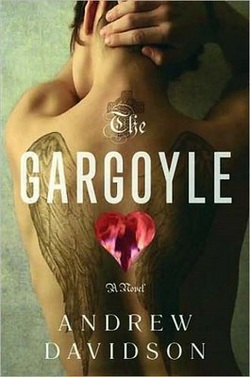
seamless fusion of classic genres such as Gothic, erotica, and horror to create something new beneath the literary sun. And a third is his invention of two of
the most compelling characters in modern literature.
The role played by the defining power of character throughout The Gargoyle becomes evident in its first horrific opening pages as our nameless anti-hero drinks and drives his way to a life-altering crash. The detailed account of the inferno that engulfs and permanently disfigures him is as lucidly terrifying as it is mesmerizingly precise. It’s not the kind of thing that most people survive but this man does, albeit with severe anatomical damage and loss: “I could hear the bubbling of my skin as the flames kissed it.” In fact, as a man and former porn star, he suffers the loss
of the one appendage with which he had earned his living.
During the course of his hospital recovery, the narrator battles thoughts of suicide, a growing addiction to morphine, and the excruciating pain of cultivating the growth of brand new skin. Enter Marianne Engel––“She appeared in the burn ward door dressed in a light green hospital gown, with those unsolvable eyes and that riotously entangled hair”––a former psychiatric patient and artist famed for sculpting gargoyles. She is convinced that she and the once-upon-a-time porn star have shared at least one major previous lifetime together when she was a German nun and he was a mercenary soldier. Even more odd, however, is Engel’s claim to have never died at all while waiting some seven centuries to reconnect with her once-beloved. She is comfortable enough with this belief that she strips naked in her new/old friend’s hospital room to reveal a body covered with a luxury of tattoos: a
beaded rosary and cross, a snake coiling up her leg to her sex, a Sacred Heart
on her left breast, a pair of angel wings upon her back, and more.
Whereas we might expect the irony to be painful, it is instead profoundly daring. Engel stands before her friend painted with beautiful symbols while the man once accustomed to being paid for his beauty is now something more akin to her gargoyle sculptures. To a degree, it would seem that his extreme disfigurements make him into the “Gargoyle” of the book’s title. But herein may lie a central aspect of author Davidson’s literary art. Is his anti-hero a gargoyle now because of how he looks, or was he in fact more of a gargoyle because of the cynicism and self-absorption that dominated his personality before his life-transforming accident? And does the ensuing journey to emotional and spiritual recovery make actually make him more beautiful than he ever was in the past?
Marianne seems at first to be a hyper eccentric teller of tales whose stories simultaneously puzzle, captivate, and motivate her friend. It turns out, however,
that these stories––in such diverse settings as France, Japan,Germany, and
Iceland––have a much greater function than simply passing the time while recuperating. Davidson’s skill at evoking the passions and dilemmas of characters in different cultures and historical eras is truly admirable. Likewise, his Dickensian talent for the creation of a cast of supporting characters who, against the odds, lend credible depth, substance, and color to the narrator’s and Marianne’s fantastic story.
Maniacal or not (or more precisely, “schizophrenic or not,”as our narrator suspects) Marianne becomes much like the angel indicated by the tattooed wings on her back as she moves our narrator into her home. There, she alternately nurses him, tells one amazing story after another, and works herself into frenzied bloody exhaustion to complete a final series of gargoyle sculptures, with the very last being of you-know-who. As one grows weaker and the other grows stronger, their original roles reverse and readers find themselves rethinking the plausibility of Marianne’s extraordinary claims.
Interwoven masterfully throughout The Gargoyle are deeply embedded allusions to Dante Alighieri’s Inferno that not only tell the history of the book itself, but that in some ways re-write the masterpiece and present it in modern form as The Gargoyle. To fully understand such a notion, one has to read and actually
experience Davidson’s triumphant first novel. A number of readers have suggested
that taking on The Inferno (for those of us who did not get to it in high school or college) either after or before reading The Gargoyle, doubly enhances the pleasure of delving into this exceptional work of new millennium fiction.
by Aberjhani
Archives
November 2023
June 2023
February 2023
December 2022
June 2022
February 2022
November 2021
September 2021
April 2021
March 2021
December 2019
November 2019
June 2019
May 2019
March 2019
January 2019
October 2017
July 2017
August 2012
Categories
All
1950s
1960s
2022 Russia Ukraine War
20th Century Authors
21st Century Artists
21st Century Authors
21st Century Poets
Aberjhani
Aberjhani Observance Of National Poetry Month
Aberjhani On Aurie Cole
Aberjhani On Brad Gooch
Aberjhani On Chinese Famine
Aberjhani On Dick Gregory
Aberjhani On Duncan McNaughton
Aberjhani On Eugene Talmadge
Aberjhani On Flannery O'Connor
Aberjhani On Immigration
Aberjhani On Jean-Paul Sartre
Aberjhani On Mao Zedong
Aberjhani On Mark Morneweg
Aberjhani On Maya Angelou
Aberjhani On Otis S. Johnson
Aberjhani On Paul Laurence Dunbar
Aberjhani On PT Armstrong
Aberjhani On Russia Ukraine Was
Aberjhani On Savannah Georgia
Aberjhani On Savannah-Georgia
Aberjhani On Yang Jisheng
Adapting Books For Film
Africa
African American Authors
African-American Authors
African-American Comics
African American History Month
African American Men
African-American Men
African Americans
African Americans Abroad
African Americans In Japan
African Americans Living Outside America
African American Writers In Savannah GA
African Diaspora
African Engineers
African Writers
AI Literary Chat Salon
Alice Walker
Amanda Gorman
American Artists
American Authors
American Civil War
American PEN Video
Andrew Davidson
Angel Art
Angel Lore
Angel Meme
Angel Of War And The Year 2022
Angelology
Annie Cohen-Solal
Antiracism
Archangel Michael
Art By Aberjhani
Art By Christia Cummings-Slack
Artist-Author Aberjhani
Artist James Russell May
Artist Marcus Kenney
Asian Authors
Audio Podcast
Aurie Cole
Author Brad Gooch
Author Connie Zweig
Author Franklin D. Lewis
Author Interview
Author Mark Morneweg
Author Poet Aberjhani Official Site
Author-Poet Aberjhani - Official Site
Authors
Authors From Savannah Georgia
Ava DuVernay
Benjamin Hollander
Benjamin Van Clark Neighborhood
Ben Okri
Ben Okri Videos
Best Interviews Of 2023
Bill Berkson
Biography
Biracial Relationships
Biracial Women
Black History Month
Black Men Who Write
Black Movie Directors
Black Women Authors
Blogs By Aberjhani
Booker Prize For Literature
Booker Prize Winners
Book Industry
Book Publishing
Book Reviews
Book Reviews By Aberjhani
Books
Books About Rumi
Books About Savannah-Georgia
Books About Sufism
Books And Authors
Books By Aurie Cole
Books By Darrell Gartrell
Books By Flannery O'Connor
Books By Patricia Ann West
Books By PT Armstrong
Books By Robert T.S. Mickles Sr.
Books By Rotimi Ogunjobi
Books On Flannery O'Connor
Brad Gooch
Brad Gooch Audio Podcast
Brunswick Georgia
Canadian Authors
Canadian Novelists
Carlos Ruiz Zafon
Caste The Origins Of Our Discontents
Celebrity Authors
Children's Literature
Chinese Authors
Chinese History
Christia Cummings-Slack
Christina Cummings-Slack
Christine Cummings
Classic Authors
Connie Zweig
Contemporary African Literature
Contemporary African Writers
Contemporary Artists
Contemporary Authors
Contemporary Canadian Authors
Contemporary Literature
Contemporary Southern Literature
Cormac Mccarthy
Cornel West
Creative Nonfiction
Creative Thinkers
Cultural Demographics
Cultural Heritage
David Gordon Green
Dick Gregory Videos
Digital Publishing
Director Regina King
Director Steve McQueen
Doctorate In Literature
Dreams Of The Immortal City Savannah Book By Aberjhani
Duncan McNaughton
Ebooks
Education
El Portal Press
English As A Second Language
English Learning Students
Essay On 21 Years Of Wisdom
Essays By Aberjhani
Essays On Ben Okri
Essays On Duncan McNaughton
Essays On Flannery O'Connor
Essays On Immigration
Eugene Talmadge
Eugene Talmadge Memorial Bridge
Evolving Cultures
Existential Creativity
Existentialism
Fall Of The Rebel Angels
Famous Women Artists
Fiction
Filming Movies In Savannah-Georgia
Flannery O'Connor
French Authors
French Literature
Genre Bending Literature
Genre-bending Literature
Global Community
Grandmothers
Great Sufi Poets
Greeting Flannery O'Connor At The Back Door Of Mind Book By Aberjhani
Gullah Geechee Culture
Gustave Flaubert
Halloween's End
Hector France
Historical Fiction
Historical Poetry
History
History Of Civil Rights Movement
History Of Famines
History Of Literature
History Of Racism
Human Cannibalism
Iconic Authors
Immigrant Experience
Immigration Policies
Influential Authors
International Authors
International Poets
Interracial Relationships
Interview
Isabel Wilkerson
Jalal Al-Din Mohammad Balkhi
Jalal Al Din Mohammad Rumi
Jalal Al-Din Mohammad Rumi
James Joyce
Jean Genet
Jean-Paul Sartre
Jelaluddin Rumi
Jim Crow Racism
Lady Gaga
Latino Ficiton
Leadership Philosophy
Leadership Theory
Life And Legacy Of Dick Gregory
Life And Legacy Of Flannery O'Connor
Lillian Gregory
Literary Biographies
Literary Community
Literary Criticism
Literary Essays
Literary Friendships
Literary History
Literary Honors
Literary Influencers
Literary Influences
Literary Legacies Of The South
Literary Prizes
Literary Traditions
Literary Translations
Literature Of Immigration
Luca Giordano
Memoir
Memoir By Darrell Gartrell
Michal Majernik
Movie Sets
Mythology
National Poetry Month
Naturalism Fiction
New Orleans
Nicanor Parra
Nigerian Authors
Nigerian Literature
Nigger By Dick Gregory
Nobel Laureates
Nonfiction
Novels
Official Site For Author Poet Aberjhani
Official Site For Author-Poet Aberjhani
Official Website Of Author Poet Aberjhani
Official Website Of Author-Poet Aberjhani
Oklahoma City
Oprah Winfrey
Patricia Ann West
PEN America
PEN International
Philosophy
Podcast On Literature
Poems About Savannah-Georgia
Poems By Patricia Ann West
Poetry
Poetry By Aurie Cole
Poetry By Duncan McNaughton
Poets Against War
Poets From
Poets From Afghanistan
Poets From Boston
Poets From Savannah Georgia
Poets From Savannah-Georgia
Poets On War
Political Activism
Political Biographies
Political Strategies
Political Theories
Postered Poetics Art By Aberjhani
Predatory Gentrification
Preventing Erasures Of History
Prose And Poetry
Prose Poem
Public Intellectuals
Public School System
Publishers
Publishing
Publishing Options
Putin Attacks Ukraine
Q&A With Author
QOTD Quote Of The Day
Quentin Tarantino
Quotations
Quotes By Dick Gregory
Quotes By Flannery O'Connor
Quotes By Mark Morneweg
Race In America
Race In Japan
Racism In Georgia
Racism In Savannah
Racism In The United States
Reiki Master
Richard Wright
Rotimi Ogunjobi
Rumi's Birthday
Russian Invasion Of Ukraine
Russia Ukraine Conflict 2022
Russia Ukraine Video
Russia Ukraine War
Salman Rushdie
Sandfly In Savannah Georgia
San Francisco Poets
Savannah College Of Art And Design Graduates
Savannah Georgia
Savannah-Georgia
Savannah River
Savannah State University
SCAD Graduates
Singer Sade
Social Activism
Social Realism
Somewhere In The Stream By Duncan McNaughton
South Carolina
Southern Legacies
Spike Lee
Spiritual Counseling
Spirituality
Starvation
Still Water Words
Sufi Literature
Talks Between My Pen And Muse
Teachable Take-Aways
Text And Meaning Series By Aberjhani
The American Poet Who Went Home Again
The Angel's Game
The Famished Road
The Gargoyle By Andrew Davidson
The River Of Winged Dreams
The Word "Nigger"
Toni Morrison
Transgression Fiction
Transgression Literature
Transgressive Literature
Tribute To Dick Gregory
Ukraine Russia Crisis 2022
Video
Video Podcast
Video Poem
Videos About Rumi
Videos On Literature
Wakanda Forever
War And Peace
William Anderson
Wisdom21
Women Artists
Women Authors
Women Poets
Women's Voices
World Community
World History
World Poetry Day
Writers And Writing
Xenophobia
Yang Jisheng
Year 2022 In Review
Yoko Ono
YouTube Videos
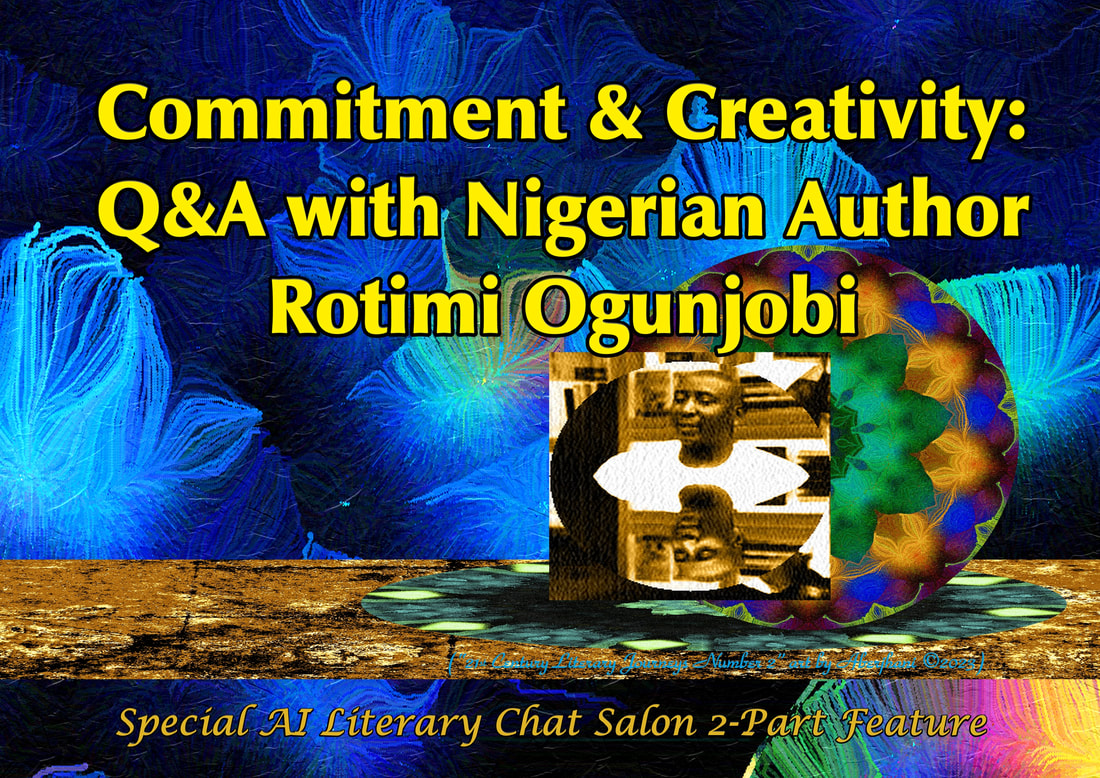
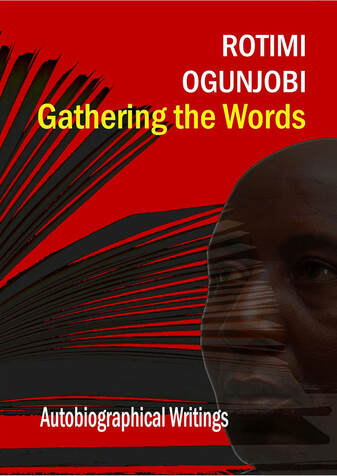
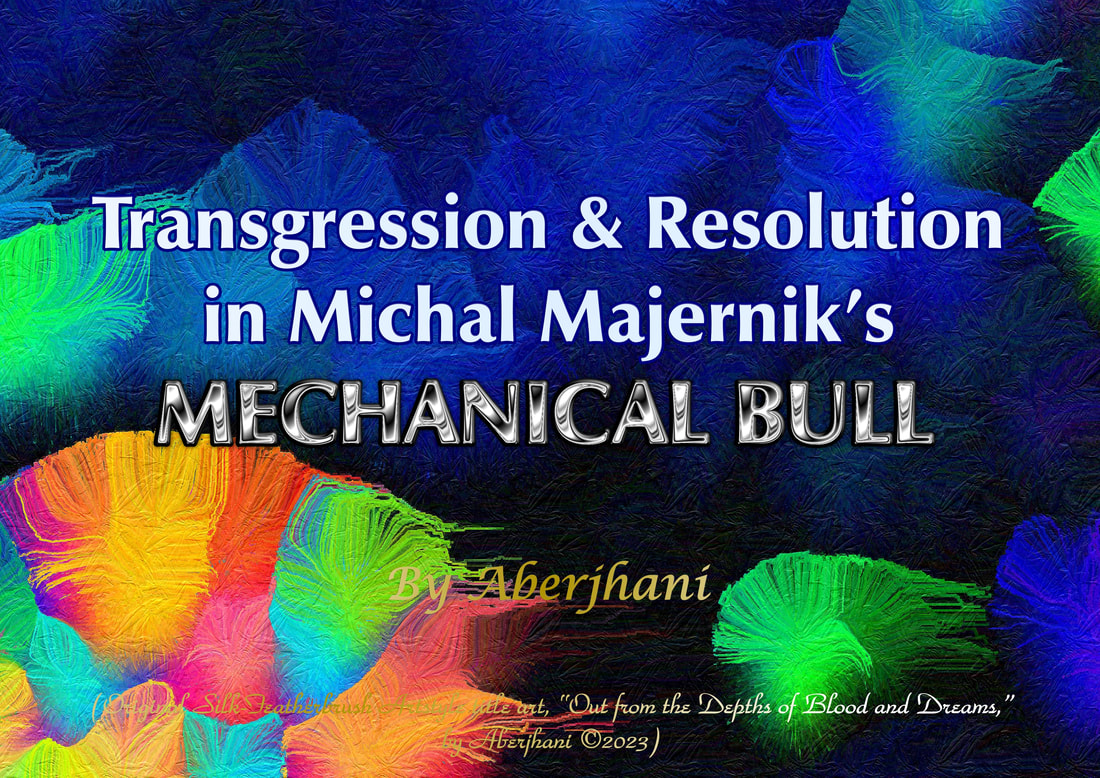
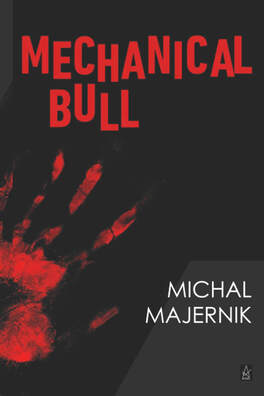
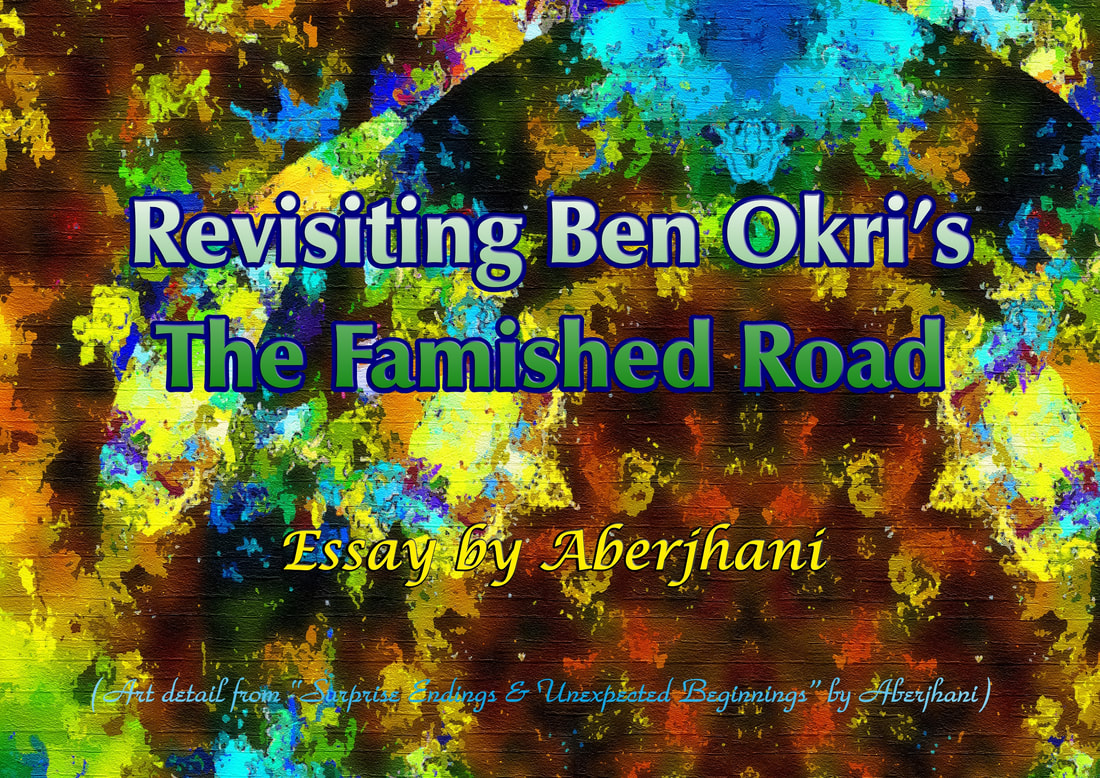
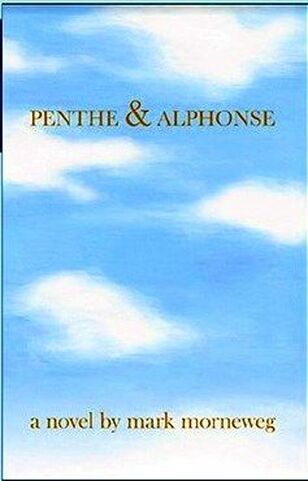
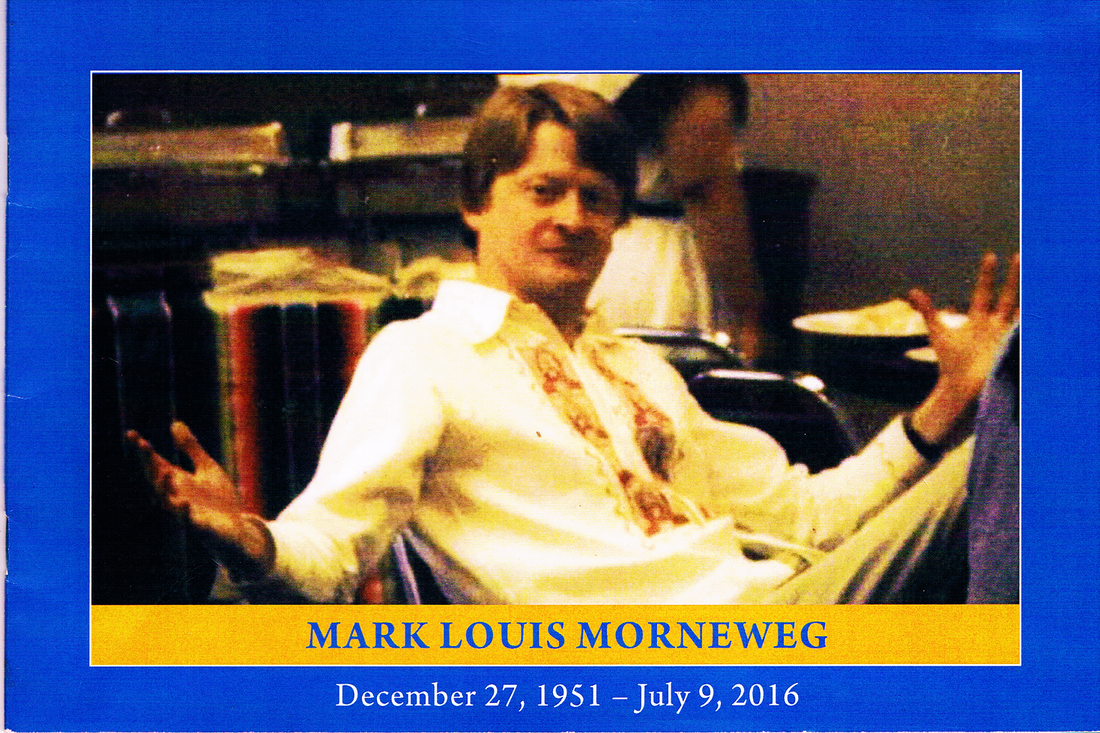
 RSS Feed
RSS Feed